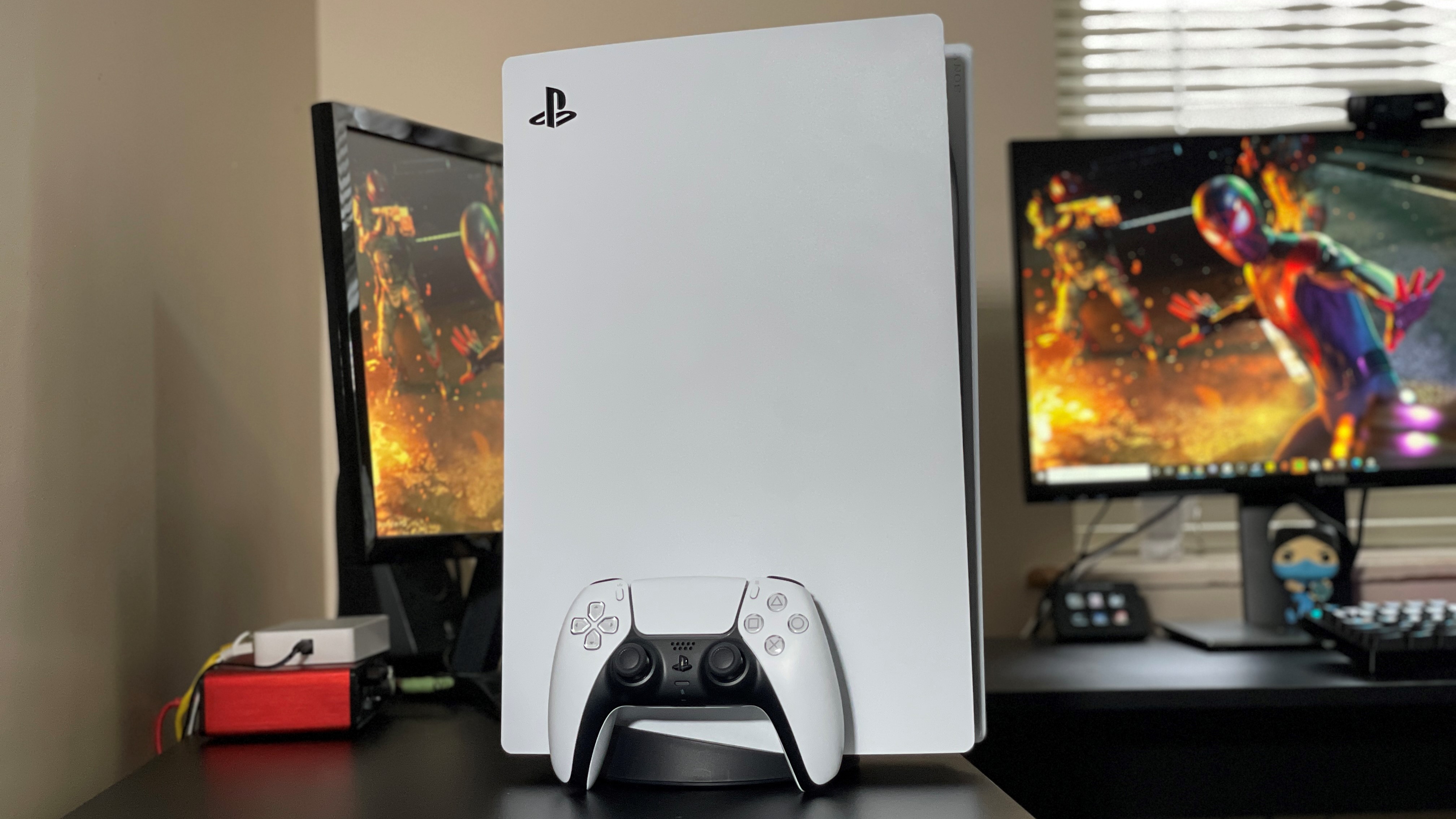PS5 crazy fast load times just revealed — this is the reason to upgrade
PS5 loads Spider-Man: Miles Morales in a mere seven seconds — this will supercharge gaming

Here at Tom’s Guide our expert editors are committed to bringing you the best news, reviews and guides to help you stay informed and ahead of the curve!
You are now subscribed
Your newsletter sign-up was successful
Want to add more newsletters?

Daily (Mon-Sun)
Tom's Guide Daily
Sign up to get the latest updates on all of your favorite content! From cutting-edge tech news and the hottest streaming buzz to unbeatable deals on the best products and in-depth reviews, we’ve got you covered.

Weekly on Thursday
Tom's AI Guide
Be AI savvy with your weekly newsletter summing up all the biggest AI news you need to know. Plus, analysis from our AI editor and tips on how to use the latest AI tools!

Weekly on Friday
Tom's iGuide
Unlock the vast world of Apple news straight to your inbox. With coverage on everything from exciting product launches to essential software updates, this is your go-to source for the latest updates on all the best Apple content.

Weekly on Monday
Tom's Streaming Guide
Our weekly newsletter is expertly crafted to immerse you in the world of streaming. Stay updated on the latest releases and our top recommendations across your favorite streaming platforms.
Join the club
Get full access to premium articles, exclusive features and a growing list of member rewards.
Sony has been touting the rapid loading times of the PS5 for months, extolling the powers of a custom 825GB SSD. But we now have a clear idea of just how screamingly fast games will load on the next-gen console.
Thanks to a leaked video - which has now been purged from YouTube - we could see how Spider-Man: Miles Morales loads in a mere seven seconds on the PS5.
- Black Friday PS5 deals: What to expect and best early sales
- Check out our PS5 hands-on impressions
- Plus: This big PS5 accessory isn't coming at launch — here's why
The now-removed YouTube video was originally posted to the r/PS5 subreddit and also Imgur. Sony currently has an embargo in place on most kinds of PS5-related content, so is trying its best to take down any content that spills the secrets early.
To be specific, the seven-second figure is the time it takes to go from the PS5's main menu to the game, with another two seconds to load your save file. But even that combined nine seconds is still very impressive, thanks to the custom PCIe 4.0 SSD at the heart of the PS5. A similar test on a PS4 would take 43 seconds by comparison.
In our own hands-on time with the PS5, we noted that while it’s an enormous console, it’s not as heavy as its monolithic size might indicate. It’s fairly simple to set up, and the DualSense controller is a huge upgrade on the previous DualShock controllers, as we talk about in our Astro's Playroom hands-on.
We’ll have more to talk about in the near future, but for now just imagine the possibilities of being able to boot-up games so quickly. Even if the Xbox Series X can apparently do this for multiple games, letting you easily switch between them.
Supercharged SSD

The promise of faster loading times has been a major selling point for the PS5. Architect Mark Cerny specifically designed the PlayStation 5’s internal hardware to bypass as much data bottlenecking as possible.
Get instant access to breaking news, the hottest reviews, great deals and helpful tips.
The PS5 does this mainly through its use of a custom designed SSD, or solid-state drive. It’s able to push 5.5GBs of raw bandwidth per second. Along with hardware accelerated decoding, bandwidth is pushed to between 8 to 9GB/s. While even the fastest consumer desktop SSDs can push 5GB/s, computers lack the bespoke design of the PS5 to help that data communicate with the rest of the hardware as fast as possible.
With data being pushed this fast, it can actually change a game’s design. According to Cerny, one of the biggest challenges for developers is trying to fulfill an artistic vision around hardware constraints.
"Let's say an enemy is going to yell something as it dies, which can be issued as an urgent cut-in-front-of-everybody else request, but it's still very possible that it takes 250 milliseconds to get the data back due to all of the other game and operating requests in the pipeline," Cerny told Eurogamer. "That 250 milliseconds is a problem because if the enemy is going to yell something as it dies, it needs to happen pretty much instantaneously; this kind of issue is what forces a lot of data into RAM on PlayStation 4 and its generation."
Essentially, Cerny is saying that for instances where data is needed quickly, those megabytes must be stored on RAM. But RAM is precious, and using some RAM means having to give something else up. Because the PS5’s SSD is so blazingly fast, it, in effect, can serve almost like RAM.
While PS5 units have been sent to reviewers, all are on strict embargo not to show off any footage. The person who made this video either was able to procure a PS5 unit early through a retailer, or is breaking an NDA.
Twitter user Alejandroid1979 posted an interesting comparison between PS4’s Spider-Man and PS5’s Miles Morales. On PS4, when exiting a mission and going back to Manhattan’s open world, it requires a lengthy loading screen. On PS5, Morales can easily sling himself outside, making it feel like the inside of buildings and the city are all connected.
What happens in Spiderman ps4 when you exit a hideout vs what happens in Miles Morales #PS5 pic.twitter.com/beaByPcvQfOctober 14, 2020
The PS5 and Spider-Man: Miles Morales are set to launch on November 12.

Imad is currently Senior Google and Internet Culture reporter for CNET, but until recently was News Editor at Tom's Guide. Hailing from Texas, Imad started his journalism career in 2013 and has amassed bylines with the New York Times, the Washington Post, ESPN, Wired and Men's Health Magazine, among others. Outside of work, you can find him sitting blankly in front of a Word document trying desperately to write the first pages of a new book.
 Club Benefits
Club Benefits










